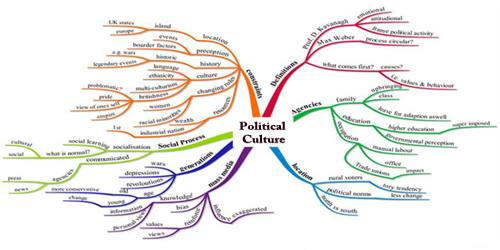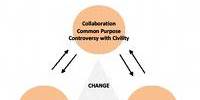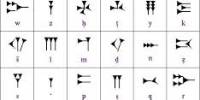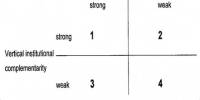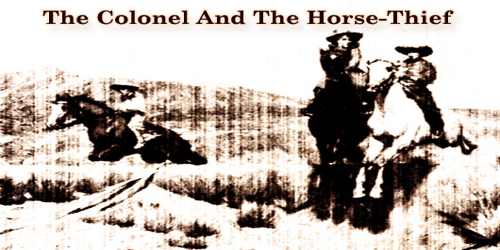The term ‘Political Culture’ is used in the field of social science. It refers to historically-based, widely-shared beliefs, feelings, and values about the nature of political systems, which can serve as a link between citizens and government. Every political system is embedded in a particular political culture. Its origins as a concept go back at least to Alexis de Tocqueville, but its current use in political science generally follows that of Gabriel Almond.
The notion of political culture does not refer to attitudes toward specific actors, such as a president or prime minister, but rather denotes how people view the political system as a whole and their belief in its legitimacy. American political scientist Lucian Pye defined political culture as the composite of basic values, feelings, and knowledge that underlie the political process. Hence, the building blocks of political culture are the beliefs, opinions, and emotions of the citizens toward their form of government.
Political culture is the product of both the collective history of a political system and the life histories of the members of that system, and thus it is rooted equally in public events and private experiences.
Political culture is a recent term that seeks to make more explicit and systematic much of the understanding associated with such long-standing concepts as a political ideology, national ethos and spirit, national political psychology, and the fundamental values of a people. Political culture, by embracing the political orientations of both leaders and citizens, is more inclusive than such terms as political style or operational code, which focuses on elite behavior. On the other hand, the term is more explicitly political and hence more restrictive than such concepts as public opinion and national character.
Different countries have different political cultures, which can help us understand how and why their governments are organized in a certain way, why democracies succeed or fail, or why some countries still have monarchies. Understanding our own political culture can also provide clues to political relationships, such as those we share with each other or our governments.
However, it’s important to understand that political culture differs from political ideology. The term ‘political ideology’ refers to a code of beliefs or views about governments and politics that may influence the way we vote or whether or not we support certain legislative actions.
María Eugenia Vázquez Semadeni defines political culture as “the set of discourses and symbolic practices by means of which both individuals and groups articulate their relationship to power, elaborate their political demands and put them at stake.”
Gabriel Almond defines it as “the particular pattern of orientations toward political actions in which every political system is embedded”.
Lucian Pye’s definition is that “Political culture is the set of attitudes, beliefs, and sentiments, which give order and meaning to a political process and which provide the underlying assumptions and rules that govern behavior in the political system”.
Theories of Political Culture –
The concept of political culture can be seen as a natural evolution in the growth of the behavioral approach in political analysis, for it represents an attempt to apply to problems of aggregate or systemic analysis the kinds of insights and knowledge which were developed initially by studying the political behavior of individuals and small groups.
Political culture has been studied most intensively in the context of established Western democracies. The classic study of political culture is The Civic Culture (1963) by American political scientists Gabriel Almond and Sydney Verba. Based on surveys conducted in the United States, Britain, West Germany, Italy, and Mexico, this landmark investigation sought to identify the political culture within which liberal democracy is most likely to develop and consolidate. Almond and Verba’s argument is based on a distinction between three pure types of political culture: parochial, subject, and participant. In a parochial political culture, citizens are only indistinctly aware of the existence of the central government. In a subject political culture, citizens see themselves not as participants in the political process but as subjects of the government. In a participant political culture, citizens believe both that they can contribute to the system and that they are affected by it. Almond and Verba’s work attracted the attention of generations of scholars who replicated the findings, criticized the conceptualizations, and refined the theory.
Other theories of political culture address how political culture takes root and is transferred from generation to generation through political socialization and include Seymour Martin Lipset’s formative events theory, which describes the long-lasting effects of key events that took place when a country was founded; Louis Hartz’s fragment theory, which explains the long-lasting effects of European colonization on countries and societies; and Roger Inglehart’s post-materialism theory, which explains the long-lasting effects of childhood economic and social conditions.
More specifically, the concept of political culture was developed in response to the need to bridge a growing gap in the behavioral approach between the level of microanalysis, based on the psychological interpretations of the individual’s political behavior, and the level of macro analysis, based on the variables common to political sociology. In this sense, the concept constitutes an attempt to integrate psychology and sociology so as to be able to apply to dynamic political analysis both the revolutionary findings of modern depth psychology and recent advances in sociological techniques for measuring attitudes in mass societies. Within the discipline of political science, the emphasis on political culture signals an effort to apply an essentially behavioral form of analysis to the study of such traditional problems as a political ideology, legitimacy, sovereignty, nationhood, and the rule of law.
Almond and Verba’s core idea was that democracy will prove most stable in societies where subject and parochial attitudes provide ballast to an essential participant culture. This mix is known as civic culture. In this ideal combination, the citizens are sufficiently active in politics to express their preferences to rulers but not so involved as to refuse to accept decisions with which they disagree. Thus, the civic culture resolves the tension within democracy between popular control and effective governance. In Almond and Verba’s study, Britain and, to a lesser extent, the United States came closest to this ideal. In both countries, the citizens felt that they could influence the government. Following the pioneering footsteps of The Civic Culture, American political scientist Robert Putnam argued that civic community, based on high levels of political interest, social equality, interpersonal trust, and voluntary association, leads to higher probabilities of effective governance and democracy.
Political Culture and Socialization –
Intellectual curiosity about the roots of national differences in politics dates from the writing of Herodotus, and possibly no recent studies have achieved the richness of understanding of such classic studies of national temperament as those by Tocqueville, Bryce, and Emerson. But the dynamic intellectual tradition which inspired political culture studies comes almost entirely from the studies of national character and the psycho-cultural analyses of the 1930s and 1940s. Benedict (1934; 1946), Mead (1942; 1953), Gorer (1948; 1953; 1955), Fromm (1941), and Klineberg (1950) all sought to utilize the findings of psychoanalysis and cultural anthropology to provide a deeper understanding of national political behavior. A major objection to these studies was their failure to recognize that the political sphere constitutes a distinct subculture with its own rules of conduct and its distinct processes of socialization. The practice of moving directly from the stage of child training to the level of national decision making meant that crucial intervening processes were neglected.
Information Sources:
